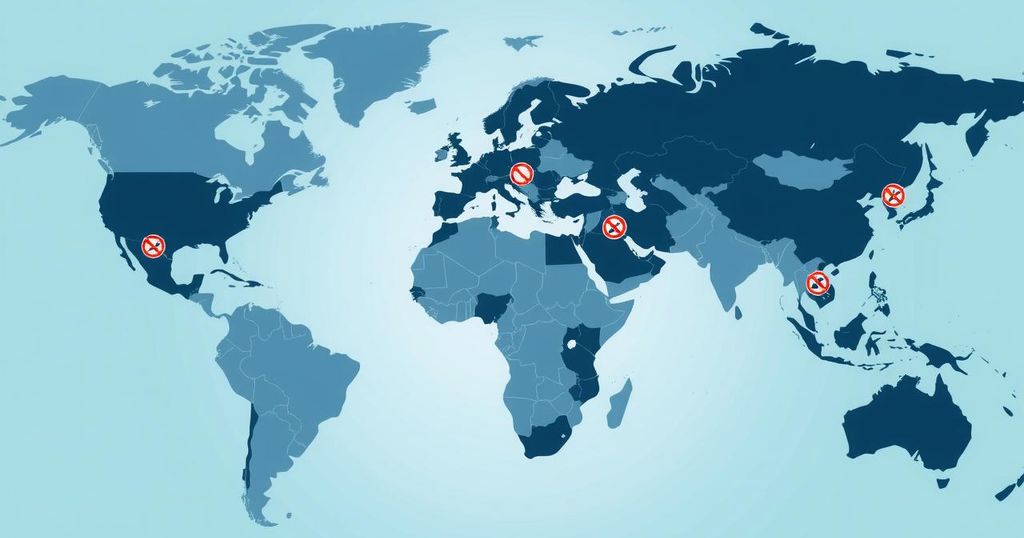Trump Issues New Travel Ban Affecting Nearly 20 Countries: What Travelers Need to Know

President Trump has signed a new travel ban affecting nearly 20 countries, citing national security concerns. The full ban applies to 12 nations while 7 others face partial restrictions. The restrictions will start on June 9, 2025, and travelers are urged to consult officials for guidance amid anticipated delays and denials.
President Donald Trump has announced a new travel ban that will affect nearly 20 countries. The proclamation, signed on Wednesday, cites national security as the primary reason for the restrictions. Foreign nationals from Afghanistan, Burma, Chad, the Republic of Congo, Equatorial Guinea, Eritrea, Haiti, Iran, Libya, Somalia, Sudan, and Yemen will be barred from entering the United States. Additionally, travel suspensions also extend to citizens from Burundi, Cuba, Laos, Sierra Leone, Togo, Turkmenistan, and Venezuela.
According to the White House, these countries were identified due to their “high visa overstay rates” and apparent deficiencies in screening and vetting processes. The announcement echoes aspects of the controversial travel ban introduced in 2017, which targeted mainly Muslim-majority nations; that ban was ultimately repealed by former President Joe Biden in 2021, who labeled it a “stain on our national conscience.”
While this latest travel ban allows exceptions for lawful permanent residents and current visa holders, specific qualifications for entry under “U.S. national interests” are still unclear. The situation is already raising questions for international travelers, especially those from the countries affected. Applicants for tourism, work, and student visas may face significant delays or denial of entry.
Travelers currently in the U.S. might still renew their visas; however, complications regarding reentry to the country could arise. This policy change aligns with Trump’s campaign trail promise ahead of the 2024 elections, coming soon after a recent antisemitic incident in Colorado, which he referenced on social media as a reason to emphasize border security.
The full list of banned countries includes Afghanistan, Burma (Myanmar), Chad, Republic of the Congo, Equatorial Guinea, Eritrea, Haiti, Iran, Libya, Somalia, Sudan, and Yemen. Partial restrictions apply to Burundi, Cuba, Laos, Sierra Leone, Togo, Turkmenistan, and Venezuela. The enforcement of these new travel restrictions is set to begin at 12:01 a.m. ET on Monday, June 9, 2025.
Travelers from fully banned nations who attempt entry into the U.S. post-ban will likely be denied boarding by airlines or turned away at airports. Those from partially restricted countries may face additional scrutiny. For individuals who have already bought tickets but are subject to the new restrictions, it is recommended that they reach out to their airlines or the nearest U.S. embassy for guidance. While some exceptions may apply, most travelers from banned nations are expected to be denied entry.
Experts advise everyone to closely follow updates from the U.S. Department of State and to consult with immigration attorneys to clarify their eligibility under the new guidelines.
The recent travel ban by President Trump affects nearly 20 countries, restricting national entry for security reasons. Though some exceptions exist, international travelers are advised to consult their airlines and immigration lawyers due to potential entry complications. The ban will officially take effect on June 9, 2025, and many travelers may see delays or denials as they navigate these new restrictions.
Original Source: www.usatoday.com







